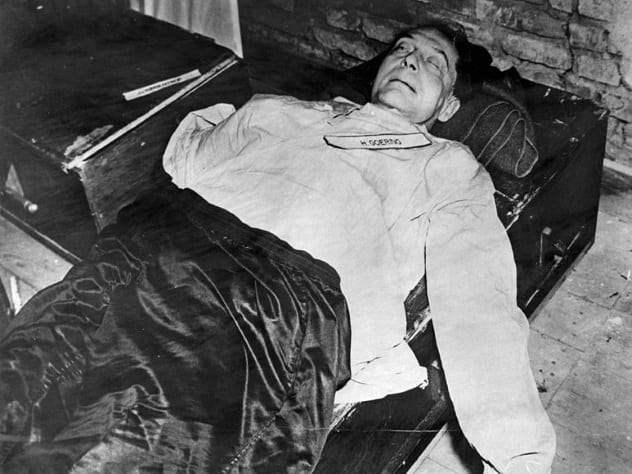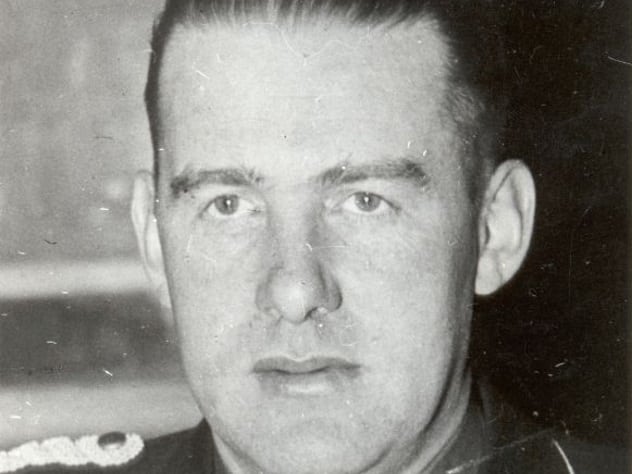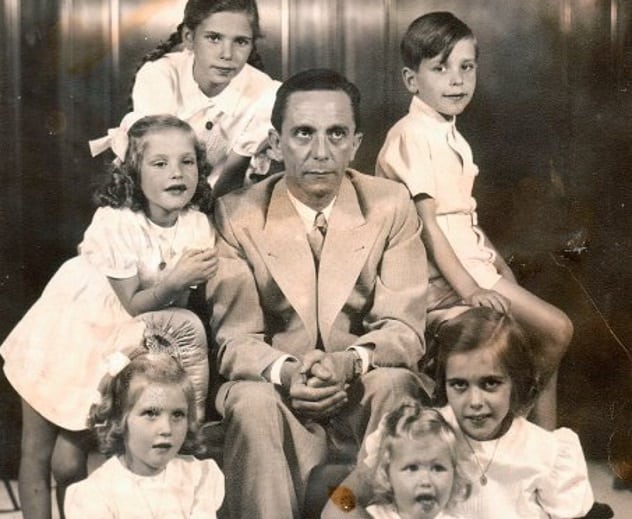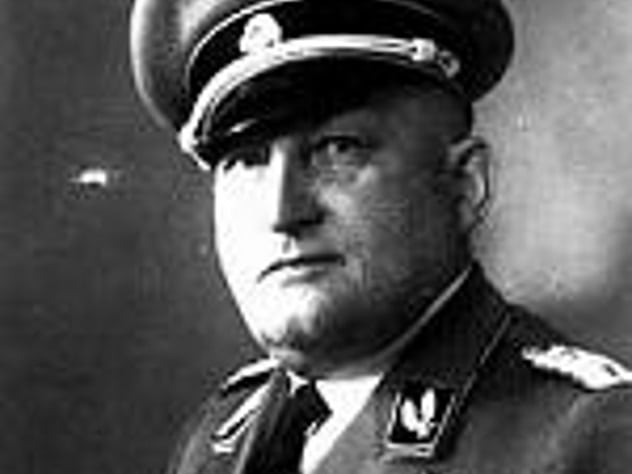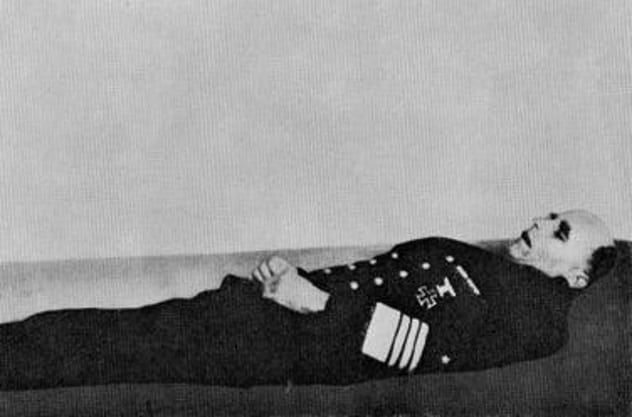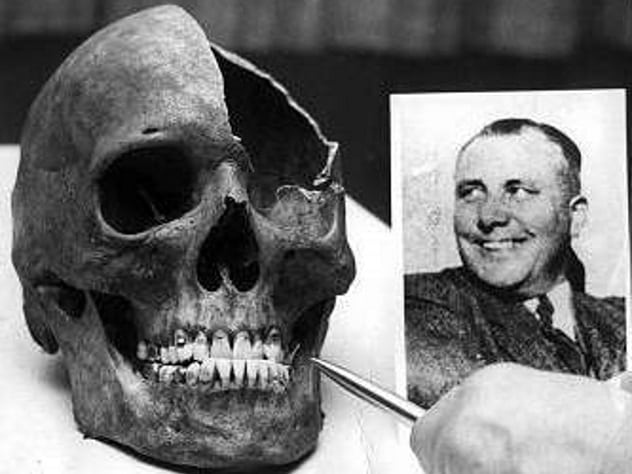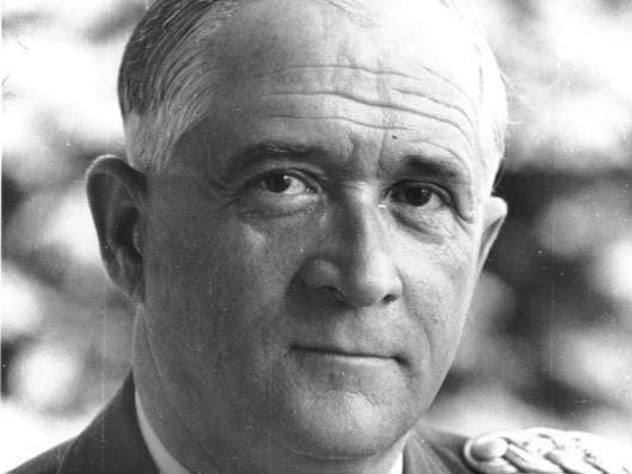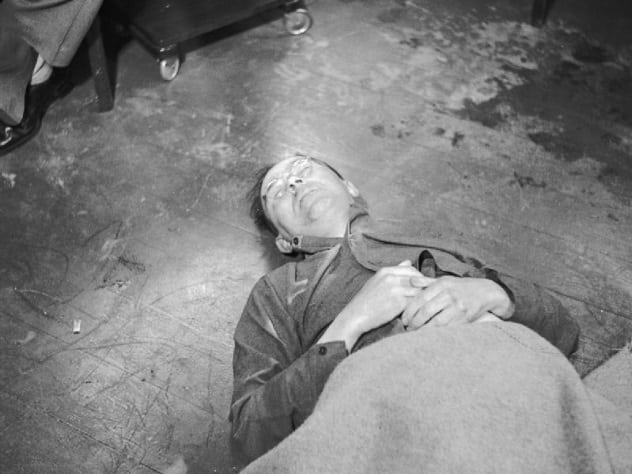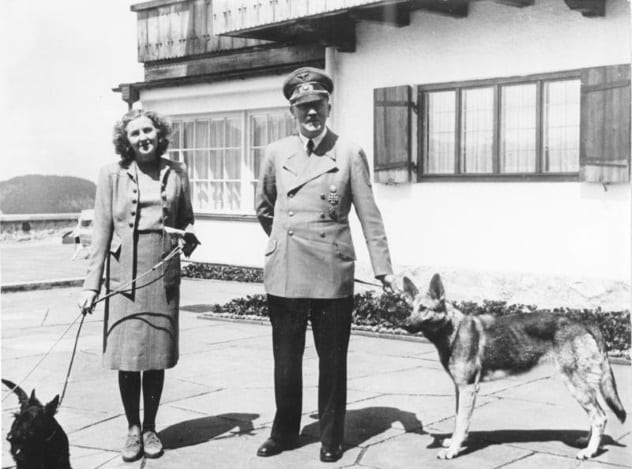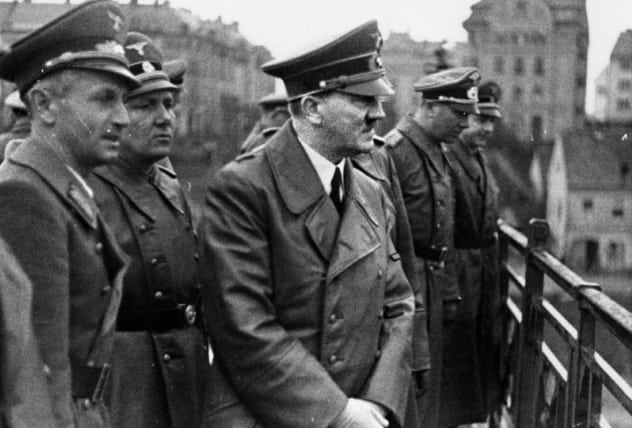In an ironic twist of fate, many notable Nazis would later die by the very poison they so heavily utilized, administering the agent themselves as the war unraveled and their lives fell apart. Staring down the barrel of the Allied invasion, these Nazis knew their time was up and opted to take their own lives. Twisted irony? The easy way out? Or did they finally get a rightfully deserved taste of their own medicine? Either way, the Nazis handed these cyanide capsules out like candy, leaving many to die from a taste of their own medicine. Here are ten notable Nazis who died by cyanide poisoning.
10 Hermann Goering
Herman Goering was a Nazi leader and was very active in many of the most horrible, fascist events which took place over the decades between the time the Nazis first began to gain early traction until the climax of World War II. He even survived to see the Nuremberg trials. Goering famously created the Gestapo, which enforced the party’s domination. In 1934, Hitler had feared that there were too many political figures who had gained too much power among his ranks. From June 30 to July 2, a purge of those he felt were political threats, called the Night of the Long Knives, was carried out. This purge was, of course, done in part by none other than Goering’s Gestapo secret police. In all, at least 85 people who posed a threat Hitler’s power were assassinated. Goering would also go on to help plan and invent the Nazi concentration camps, where Zyklon-B would take so many lives. Goering lived to see the end of the war and the Nuremberg trials, where figures of the Nazi party were to be held accountable for war crimes. He was convicted and sentenced to hang for his actions. He begged the court for a bullet to the head, but they steadfastly refused. On October 15, 1946, the night before he was to be hanged, Goering took a cyanide capsule in his cell. He was found dead, having been poisoned by the substance.[2]
9 Odilo Globocnik
One of the lesser-known, though equally terrifying, figures of the Nazi Party was a man by the name of Odilo Globocnik, an Austrian Nazi who had a hand in coming up with the plans to exterminate the Jews of Europe. Keeping it a secret, the Nazis named this project Aktion Reinhardt, and this monster was involved every step of the way. Before the Nazis took hold of his native Austria, Globocnik was very active in building local support for the movement—that is to say, Globocnik was a Nazi by choice, not through force, without a doubt. His responsibility for the deaths of millions of people, especially in Poland, is undeniable, but eventually fate would have its way with him. Captured in Austria by the Allies in a 4:00 AM raid on May 31, 1945, Globicnik chose to end his own life than face justice. He placed a cyanide suicide capsule under his tongue that he would hold there, allegedly for several hours, before ingesting it around 11:25 AM. He died within minutes.[3]
8 Joseph Goebbels’s Children
The date was May 1, 1945, and Hitler and Eva Braun had already taken their own lives as the Soviet war machine moved in on Berlin. The Nazi empire they had dreamed of was falling apart into literal rubble, buildings collapsing everywhere, with major party members trembling in fear at the thought of facing the Soviets. Those with enough status were able to hide in bunkers, including the propaganda minister himself, Joseph Goebbels. Goebbels had six young children at the time, and rather than see them have a chance at life under the Allies, he chose to administer poison to them in the final days of the Nazis.[4] Initially, they had called upon a Nazi doctor, a dentist originally from the Panzer division called Death’s Head named Helmut Kunz, but he was unable to bring himself to carry out the murder of six innocent children. Another physician, Ludwig Stumpfegger, would end up carrying out the deed by rendering the children unconscious and placing a 0.5-cc cyanide capsule between each of their teeth and crushing it.
7 Richard Glucks
The Allied invasion, as it toppled the Nazi war machine, resulted in many cowardly Nazi suicides, as they knew that their trials for war crimes would not treat them kindly. Was it possible that actual guilt drove them to suicide? Or was it shame and primal fear? We may never know. Another among the Nazis to do so in the end was a man named Richard Glucks. Glucks was a soldier before the rise of the Nazi Party, like many others, and would quickly move up the ranks to concentration camp inspector. He inspected the death camps and was the man who would often make the sickening decision of how many people would be executed and how many would stay alive.[5] This man even made a joint decision with Himmler that the hair of the victims of the concentration camps would be used for yarn for the Nazi soldiers. He deserved every bit of fate he received. After being shell-shocked in an Allied bombing, Glucks was laid up in a hospital, when he, too, swallowed a suicide capsule filled with cyanide. (There has been some speculation that he was killed by Jews as revenge for his role in the Holocaust.)
6 Hans-Georg Von Friedeburg
A navy admiral during the Nazis’ reign of terror, Hans-Georg von Friedeburg was a high-ranking military official who oversaw U-boat operations and commanded the Kriegsmarine. A decorated war leader, Friedeburg would move his way up through the ranks throughout the life of the Nazi Party and would cause Hell on Earth for the Allied forces at sea.[6] Unlike the others on this list, its unlikely that Hans was actually a war criminal. In fact, he aided the Allies in drafting the papers of German surrender, though he had heard, true or not, that he would still likely stand trial, probably due to his rank. Admiral Hans-Georg von Friedeburg would commit suicide on May 23, 1945, by the administration of cyanide.
5 Martin Bormann
Martin Bormann was a dark, shadowy figure, even as the head of the chancellery of the Nazi Party, who worked most often directly with Hitler himself. Bormann, with his closeness to Hitler and depth within the party, had a far-reaching influence on decisions throughout the party and the entire country. He pushed hard for the creation of concentration camps and the subsequent use of slaves. Martin Bormann was undoubtedly a monster and nefarious Nazi from the early days of the party’s inception. Bormann went through great lengths to cover his tracks and flee Germany to escape to South America, where he would hide from the Allies for the rest of his days. For half a century, this was believed to have possibly been Bormann’s fate. However, in 1998, a DNA test confirmed that a postal worker who had claimed to have found the bodies of Martin Bormann and Ludwig Stumpfegger (the man who had killed the Goebbels children) had not been lying. Both men died of cyanide poisoning on May 2, 1945.[7]
4 Robert Ritter Von Greim
One of the masterminds behind the aerial attacks on England, including the famous Battle of Britain, Robert Ritter von Greim was an airman for the Luftwaffe. He would later move up the ranks to field marshal, where he would continue the German terror from the air upon Allied forces. He was also a major figure in planning Operation Barbarossa against the Soviet Union. On May 8, 1945, von Greim was captured in Austria by American soldiers. On May 24, he killed himself while in custody in Salzburg by crushing a cyanide capsule in his mouth.[8]
3 Heinrich Himmler
One of the most notorious and nefarious figures in Nazi history was Heinrich Himmler. Beginning his tenure with the party in 1923, Himmler was a longtime party loyalist who quickly shot up in the ranks. Himmler would go on to be a leading figure in the Gestapo and various other Nazi-supporting police forces and was the twisted mind from which the infamous SS was born. While other men on this list made their contributions to the Holocaust, Himmler himself planned the extermination of the Jewish people under Nazi Germany. There is no doubt of this man’s long history as a terrifying war criminal. Himmler became minister of the interior in 1943, and surprisingly, he was actually expelled from the Nazi Party that year, though he wasn’t killed. As the war unraveled and things spiraled out of control for Germany, Himmler knew he would be brought up on war crimes charges. He attempted to flee but was captured by the Allies. On May 23, 1945, to avoid having to stand trial for war crimes at Nuremberg, he took his own life.[9] His method of choice, of course, was a cyanide suicide capsule.
2 Eva Braun
Any list about notable Nazi suicides would be incomplete without a mention of Eva Braun, Hitler’s longtime mistress and eventual wife. Braun lived a life of quiet desperation, tucked into the underbelly of the Nazi charade while Hitler championed his strange and bizarre visions of the world through the unrelenting force of the Nazi war machine. Braun attempted suicide twice while she was with Hitler. Lonely and despondent, she was definitely dissatisfied with life. While not part of the war machine itself, Eva Braun was right there at Hitler’s side all the way until the end of both of their lives, when they would die together as the Nazi German world collapsed around them. The Soviets were closing in on Berlin, and Hitler went with Braun into a secret bunker, where she would ingest a glass vial filled with the same cyanide poison that so many Nazis used to die by their own hands.[10]
1 Adolf Hitler
While it’s no secret that Hitler went out with a self-inflicted gunshot wound to the head, this list must be closed with the man whose face lives on in infamy and terror, the man who had used the cyanide-based Zyklon-B to kill so many people throughout Europe during the Holocaust. Scores had been poisoned by cyanide in the gas chambers of the Nazi death camps, tricked into supposed showers or locked into rooms, only to die from a canister of gas which seeped through the wall. And according to some, Hitler, too, would have a date with cyanide. In 1968, a Soviet intelligence officer published a book claiming that the USSR had recovered Hitler’s body, identified it, performed an autopsy on it, and found that Hitler had been poisoned with cyanide.[11] Today, some accounts of Hitler’s suicide only mention the gunshot; others say he took cyanide along with Eva Braun and then shot himself. In a bunker beneath the rubble of the fall of the Third Reich, there will forever be doubt as to what happened on that fateful day of April 30, 1945, but it’s very much within the realm of possibility, considering everyone else on this list, that to absolutely ensure his death, Hitler added in the method of suicide the Nazis favored the most: cyanide. I like dark stuff, horror, history, the macabre, and philosophy.
